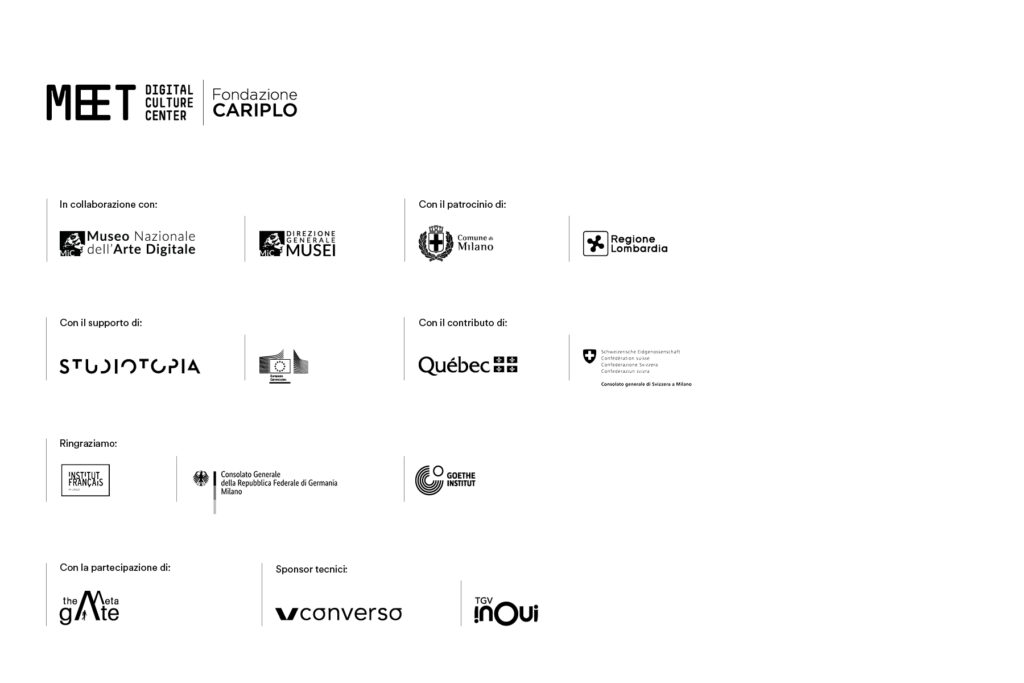Event
The New Atlas of Digital Art 2025: Immersive frontiers
Immersive Frontiers, the frontiers of immersiveness. The theme chosen for the sixth The New Atlas of Digital Art 2025 is a major international networking opportunity that will animate MEET on June 19 and 20. Two days of sharing, experiences and workshops, a critical exploration of forms of cultural fruition and mediation, entertainment experiences and, of course, art in collaboration with Museo Nazionale dell’Arte Digitale.
All MEET spaces will be inhabited by The New Atlas of Digital Arts 2025. The Theater with international panels, the Immersive Room with The Golden Key exhibition by Marc Da Costa and Matthew Niederhauser, the Gallery with Jean-Michel Jarre’s Promptitude, and the ground floor with the MEET VILLAGE. A space that hosts the MR/XR experiences of Metagate, the VR work of the NEBVLA collective curated by Sara Calandra, the project of the students of the Computational Visual Design laboratory of the PoliMi School of Design, the works of Roberto Beragnoli and Mauro Martino. Also enriching the two days are a series of artistic interludes and immersive events designed to offer the public unprecedented experiences.
Atlas 2025 is divided into three thematic cores, populated by theorists and practitioners from the international vanguard, who examine the new relationships between perception, cognition, and cultural mediation. The first session offers an overview of the current state and future prospects of immersive technologies. The second focuses on cultural institutions and how they use AI and immersiveness to transform heritage preservation and enjoyment. The third explores the impact of immersiveness and AI on models of production, distribution and economies of cultural content.
DISCOVER THE ATLAS 2025 WORK IN PROGRESS PROGRAM HERE

